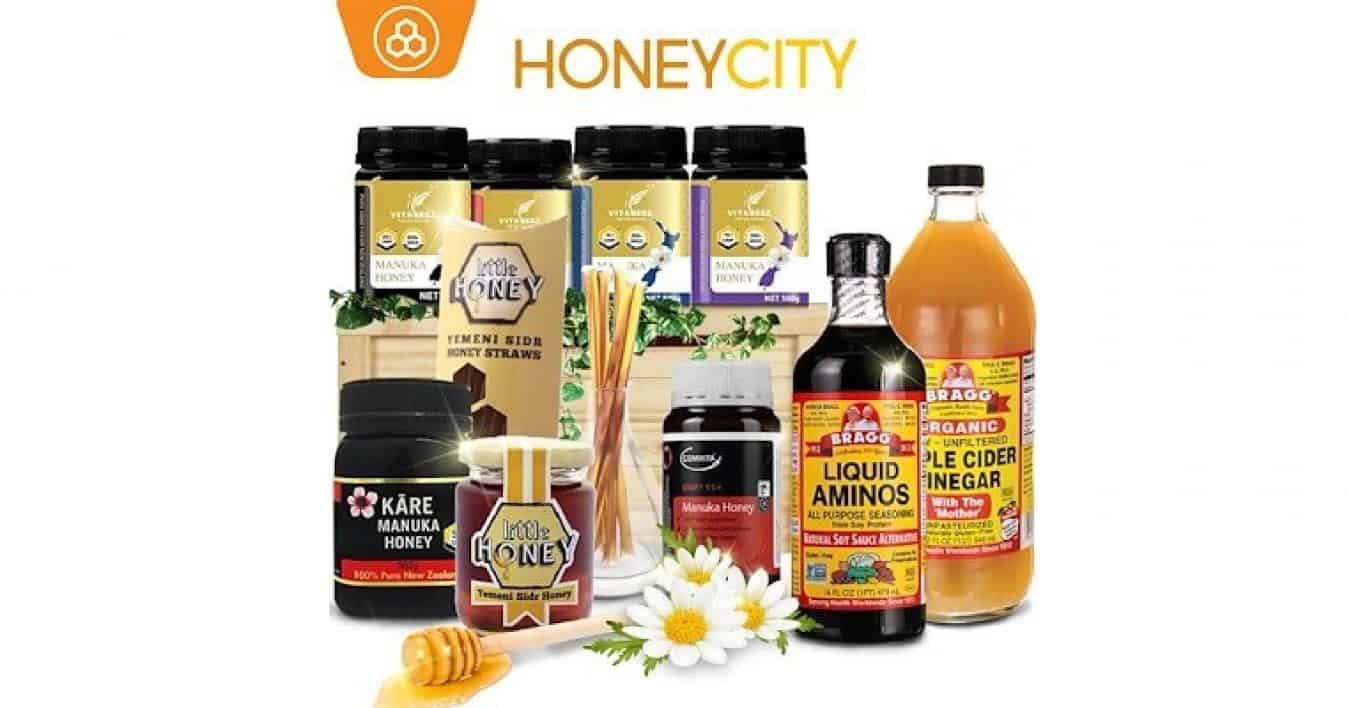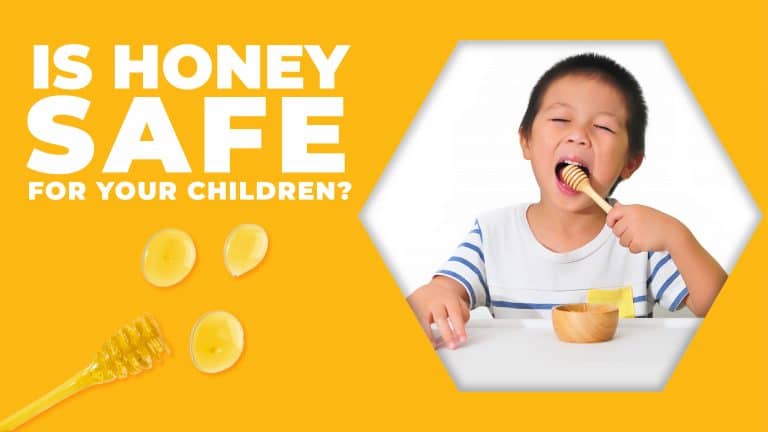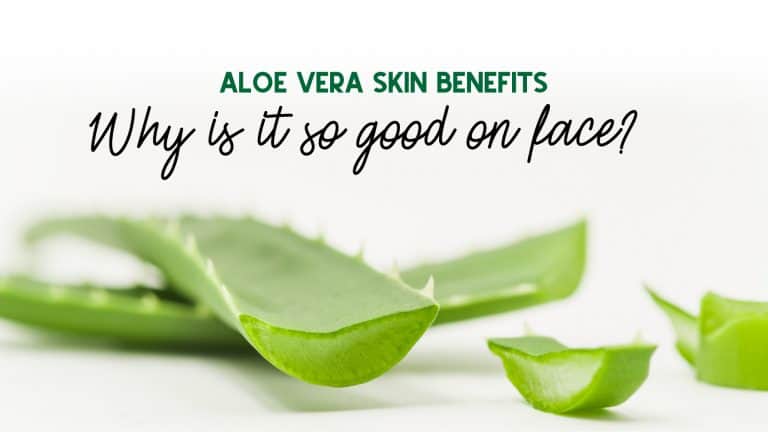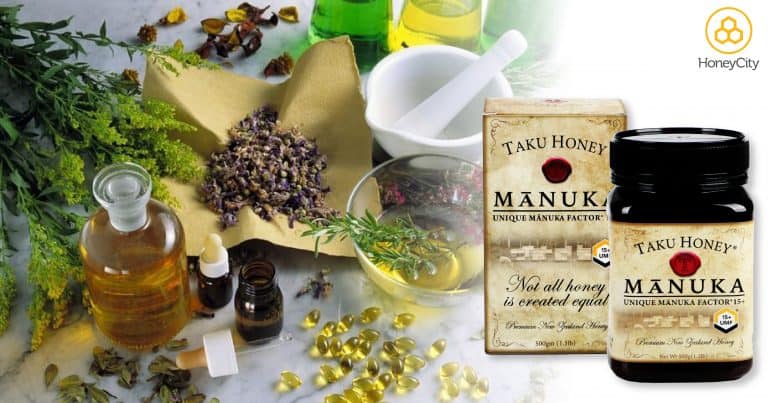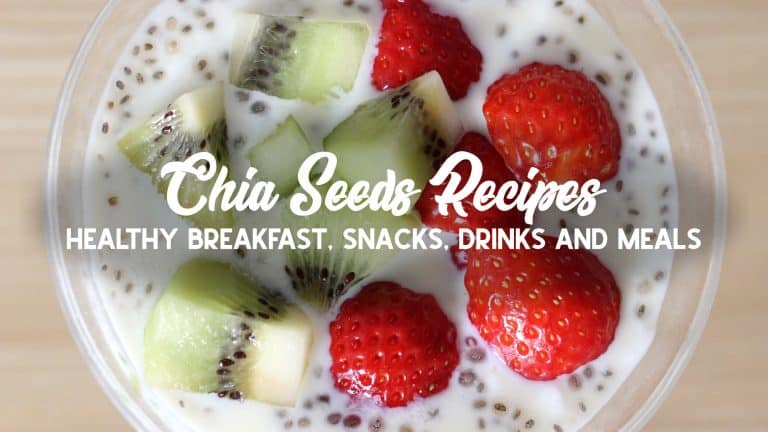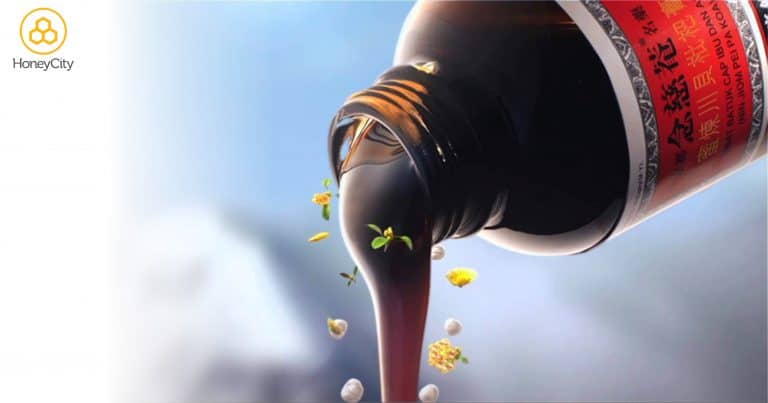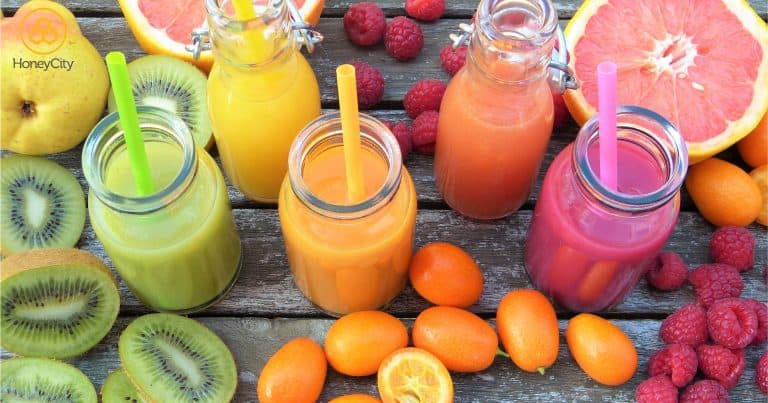Best Health benefits of Manuka Honey: 31 Myths, FAQs Answered
Are you aware that 90% of manuka honey sold globally is fake? And most people are eating it wrongly. You definitely only want the real genuine manuka honey brand for your family. Buying a real brand is tough as even reputed global supermarkets like Walmart, Giant, Cold Storage, and NTUC Fairprice are flooded with fake brands. Naturally, you’ll have a lot of questions about its benefits and myths, like whether it is authentic or fake, or how to store it.
Here, the questions you’re curious about will be answered once and for all. Read on to find out more.
31 Frequently Asked Questions, Truths, and Myths
These are the popular questions we get asked regularly, lets uncover the truths, myths about manuka honey and other bee products for our health!
What Is Manuka Honey? Why is it so special?
Manuka honey is known for being beneficial to our health because of its Unique Manuka Factor content. It comes from the manuka trees found in New Zealand and has shown antibacterial properties.
This form of monofloral honey is sourced by bees that collect nectar from the flowers of the manuka bush indigenous only to a tiny area of Australia and New Zealand. This specific climate zone and the rich dark soil produce this unique New Zealand manuka honey.
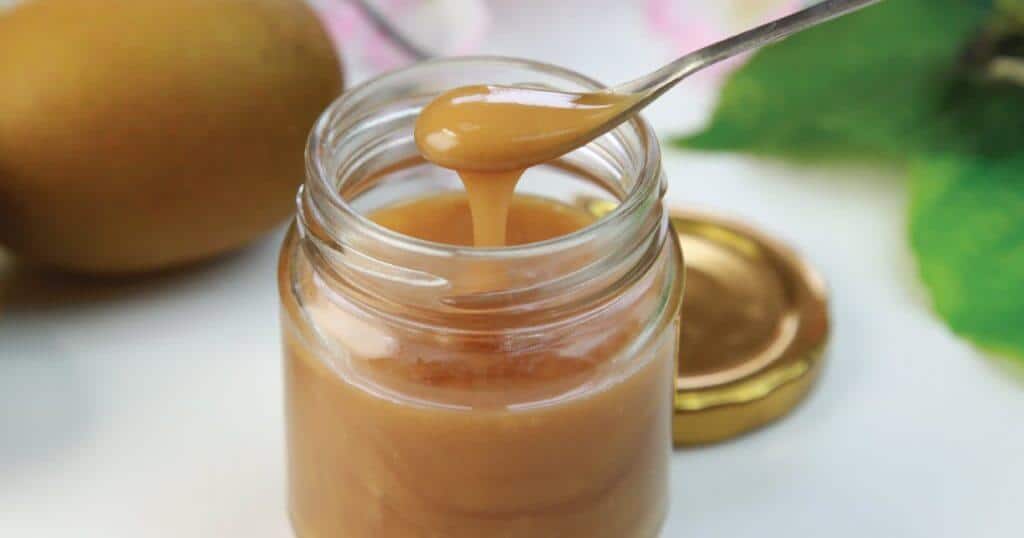
Worker bees then add an enzyme, glucose oxidase, to the nectar inside the hive in order to preserve it for storage and use later. When this is eaten, the glucose oxidase enzyme will slowly release hydrogen peroxide, which is antibacterial. The levels of hydrogen peroxide released are sufficient to destroy bacteria but yet safe enough to not affect any of our human tissues.
Research and studies suggest honey benefits of this mono-floral contains an ingredient with powerful antibacterial, antimicrobial, antiviral, antioxidant, antiseptic, anti-inflammatory, and antifungal properties. This ingredient was originally named UMF ®.
What is the best manuka honey in Singapore?
It is important to look for reputable stores or brands that offer high-quality, authentic manuka honey.
Some of the popular and trusted brands available in Singapore include Manuka Health, Comvita, and Wedderspoon. It is recommended to check the Unique Manuka Factor (UMF) rating on the label, which indicates the level of antibacterial activity in the honey. The higher the rating, the more potent and beneficial it is believed to be. Generally, go for 5+ or 10+ for daily eating, and 15+ and above for a stronger boost in health when needed.
It is also important to ensure that they are certified by the UMFHA (Honey Association) to ensure its authenticity. You can check their website for a list of certified Manuka producers and retailers.
There are also other reputable labels that are well-reputed and trusted, such as MGO. You need to ensure the seller has a long history of reputation in health food.
What Are the Components of Manuka Honey?
Manuka honey contains two main active signature compounds.
- Hydrogen peroxide (Antibiotic)
- Methylglyoxal (MG)
It is rich in hydrogen peroxide, a compound of high antibiotic quality and MG and dihydroxyacetone which are antibacterial. MG is a compound that can be found in most other types, but usually only in small quantities
What Is Methylglyoxal (MG) In Manuka Honey?
MG comes from the conversion of another compound, dihydroxyacetone, that’s found in high concentration in the nectar of manuka flowers. MG is thought to provide some of its antibacterial power. The higher the concentration of MG, the stronger the antibiotic effect. There may also be other compounds involved in the medicinal effect.
It contains up to 100 times more MG than the normal table honey found elsewhere.
Methylglyoxal is an antibacterial component found only in manuka honey in significant quantities. Scientific lab tests have verified that MG is able to kill these bacteria and superbugs:
- Helicobacter pylori (i.e. H. pylori): Causes stomach ulcers and “leaky gut” syndrome
- Staphylococcus aureus (i.e. staph infection) and MRSA: These are the “super-bugs” doctors have feared for their resistance to modern antibiotics
- E. Coli: Causes serious food poisoning
- Streptococcus pyogenes (i.e. strep throat): Causes strep throat
Beekeepers have developed a ranking system for rating potency. The rating and standards are set by the UMF Board.
This rating is thought to correspond with the concentration of MG and other compounds. Not all labels or brands contains significant levels of antibacterial factors. To be considered potent enough to be therapeutic, the bottle needs a minimum rating of 5+. Only then it is lab classified and able to sell from New Zealand as manuka honey.
What are the health benefits or medical conditions I can use manuka honey for?
Here is a list of benefits that you can give manuka honey for a variety of uses, both internally and externally. Some problems it solves include diarrhea, sore throats, and eczema.
Internal Uses of manuka honey antibacterial effects, anti-inflammatory and antioxidant properties
- Over-the-counter cough relief
- Stomach Ulcer / Stomach Pain
- Gut health
- Increae DHA intake
- Gum Disease / reduce oral bacteria
- Acid Reflux Disease
- Aches and Pains
- Arthritis
- Heartburn
- Diarrhea
- Constipation
- Sore Throats
- Poor health
- Poor Immunity
- Poor Sleep
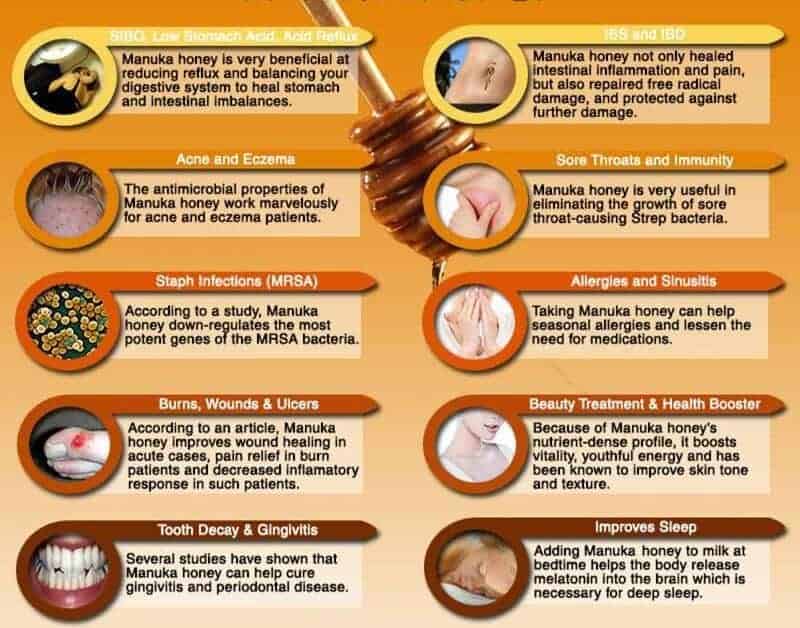
External Uses Manuka honey can help
- Good oral health, reduce sugar intake, plaque, and tooth decay
- Athlete’s Foot
- Ring Worm
- Insect Bites
- Acne and Rosacea
- Eczema and Dermatitis
- Rashes
- MRS/ Staph Infections
- Chronic Wounds Infections
- Pressure Sores
- Surgical Wounds
- Psoriasis
- Cold Sores
- Candida Albicans
- Burns
- Nail Fungus
- Skin Ulcers
Does Real Manuka Honey Attract Ants?
Yes, ants do get attracted to all types of honey.
Ants are attracted to moisture and not just the sugar content. The more water in a type of food, the higher the chance of it attracting ants. This is because ants are attracted to water.
While it’s true that the real stuff contains little water and hence attracts fewer ants than fake stuff (mostly sugar syrup mixed by dishonest merchants), it’s a myth that ants avoid honey. In the wild, flowers and raw honey attract ants due to the high moisture levels.
Real Honey Has Low Water Content
Sugary syrups attract ants more than real honey because of more moisture. There are some brands (especially from dishonest sellers/producers) that have water added to increase the weight, hence diluting the natural goodness.
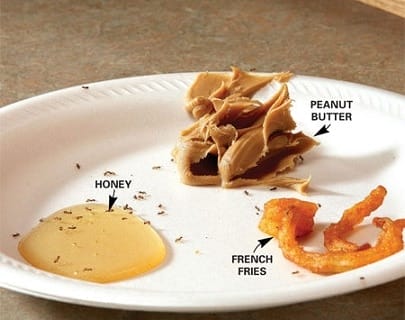
Pure honey has a moisture content of less than 20%. High-quality manuka has even less.
Manuka that is exposed to the air will draw moisture and eventually attract ants looking for food (Side note: Manuka absorbs moisture very well. This is why it’s such an awesome skincare product as it draws moisture to the skin that it’s applied on).
Moisture absorption happens even faster in a humid environment like Singapore or other tropical, warm areas like Florida.
How Does Manuka Honey Benefit My Skin or help treat acne?
We know that it provides nutrients for a healthy body and smooth skin, but not many people know that manuka honey’s antibacterial properties mean it can be applied directly to the skin to moisturize and renew it!
Famed celebrities such as Scarlett Johansson use it as a face mask as well.

Why Is Manuka Honey So Beneficial to My Skin?
Traditional honey has been used even in modern skin care for its natural antibacterial properties. They contain a high amount of hydrogen peroxide and methylglyoxal that can kill bacteria on our skin that could cause acne or other skin problems.
Eating or Applying Manuka Honey to Skin for Benefits
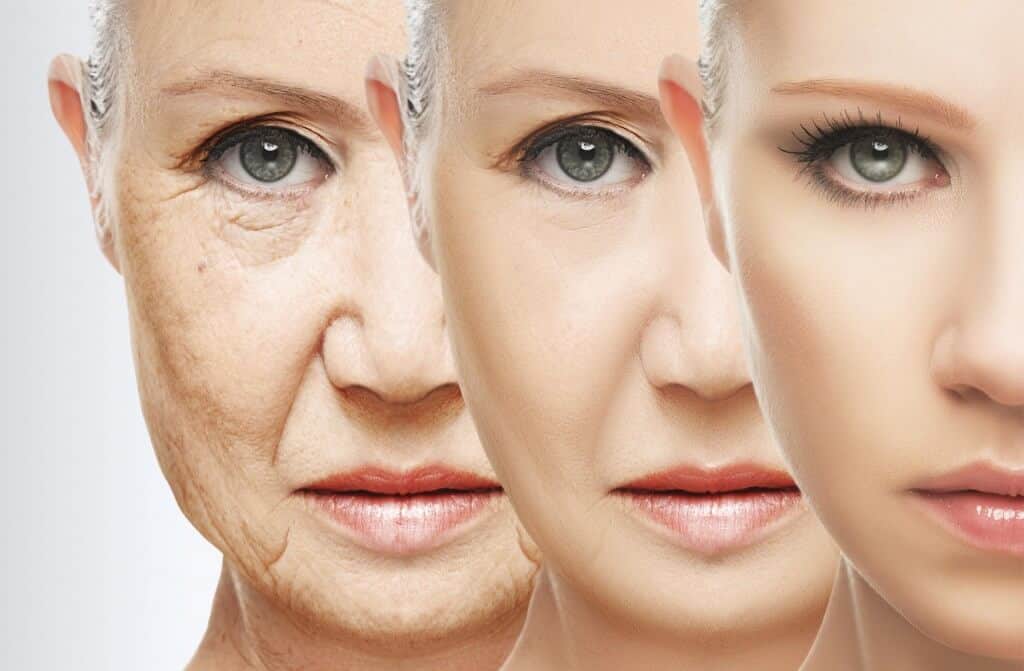
Anti-ageing
Manuka honey can retain moisture without making your skin oily. This is an important benefit in cultivating wrinkle-free skin. It also helps in anti-aging by inhibiting a group of enzymes that destroy collagen which is necessary for healthy skin.
MG has been shown to promote the structural growth of collagen in skin cells. Manuka also contains amino acids that build up collagen. A healthy level of collagen means clear, firm, healthy, and youthful-looking skin.
Repairs and Clears Skin
It’s been lab-proven that manuka honey repairs skin cellular damage, lessens scarring, and promotes skin regeneration. Manuka helps blemished skin because of its natural antibacterial properties.
It contains potent anti-inflammatory properties that soothe inflamed skin while healing blemishes. Manuka also balances the skin’s pH and its amino acids help clear dead skin cells, helping to keep pores clear.
Heals Pimples / Helps treat Acne
Manuka honey oxygenates pores and draws out bacteria, improving the skin condition of acne-sensitive zones. This reduces pimples and acne occurrences.
Manuka honey also has anti-inflammatory properties that fight acne and reduce redness. It manages and heals inflamed or congested skin and eczema.
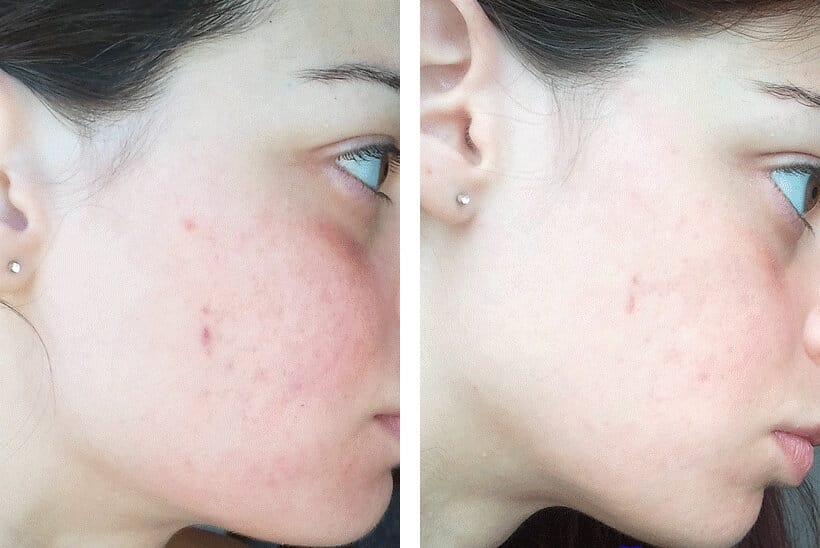
Hydrates the Skin
Manuka honey naturally draws and retains moisture in the skin. This natural hydration helps to further enhance the skin’s elasticity and cell regeneration, as well as promote skin cell healing.
Hence, this will hydrate your skin and provide a glowing complexion.
What Skin Treatments can Manuka Honey offers?
- Manuka calms and heals skin conditions such as eczema and psoriasis itching
- It heals pimples/acne and prevents acne bacteria from returning
- It reduces redness and itchiness on sensitive skin
- Manuka can cure anti-fungal skin infections like athlete’s foot or yeast infections
- It has been proven supportive of curing harmful skin infections such as staph or MRSA
- Medical-grade honey helps to soothe burns and improve healing times
- Medical grade manuka honey can enhance wound healing, skin cuts, and infections and heals them faster
- It helps in scar healing
- Manuka helps maintains a balance of healthy bacteria and keeps harmful bacteria from your skin
- Manuka gives an overall healthy glow to your skin
How to Use a Manuka Honey Face Mask
Just use it from the jar on its own!
After washing and gently exfoliating your face, pat dry with a towel and apply a very thin layer of manuka. Leave it on your face for at least 30 minutes, then wash it off with water.
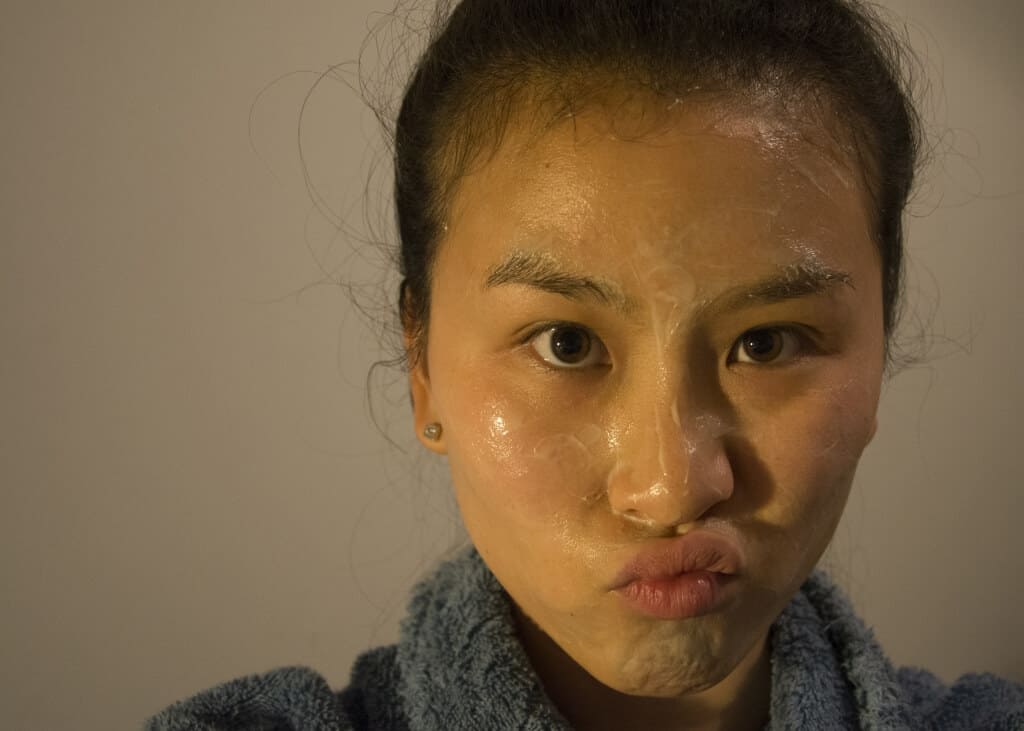
You can use it in some other methods of facial treatment:
Cinnamon honey Mask Face Routine Skin Treatment:
- Use hot water to steam your skin. Be careful not to be hurt by the hot water.
- You should use a clean towel to pat dry.
- Mix manuka products with cinnamon. Apply a thin layer of this mixture on your face.
- Leave it on your face for 20 minutes. Gently wipe off and rinse with cold water to close your facial pores.
You may also use the same mixture as a facial spot treatment and leave it on overnight to heal.
Cleanser: Add a few drops of hot water to a teaspoon-sized portion of manuka and massage around your entire face for 3 minutes. Then, gently wipe off with a facial cloth or sponge for extra exfoliation.
Acne Scars/Dark Spot Treatment: Fade dark spots or acne scars to brighten and heal your skin. Mix lemon juice, a teaspoon of cane sugar, and a teaspoon of manuka. After that, use hot water to steam your skin, pat dry and massage this mixture in the facial zone and leave it on for 20 minutes. Following that, use cold water to rinse and close your pores.
Where Can I Get Manuka Skin Products?
You can buy manuka honey that is certified to eat daily or to apply on your skin on HoneyCity’s website. Some celebrities directly apply them to their face and skin.
Is Manuka Honey Good for Eczema?
For many types of adult and child eczema, it can be managed with ointments or cream.
A study of eczema sufferers that underwent the application of honey, beeswax, and olive oil for two weeks found that 8 out of 10 cases have experienced significant improvements in their conditions.
Applying them helps eczema patients in these ways:
- The skin barrier for eczema sufferers is weaker, so it helps to create extra barrier protection to prevent infection
- The skin retains moisture and reduces incidents of eczema flare-ups
- Manuka honey has bacteria-fighting properties that combat staphylococcus and other topical infections
- Inflammation is reduced
- Broken skin, dry, flaky, cracked skin are all common wounds that can be healed much faster
You can apply it topically or consume it orally for the nutrients to boost your immune system.
[vc_row][vc_column]
Is manuka honey safe? Does it help treat wound healing, oral health, or gastric ulcers?
Manuka honey is generally considered safe for consumption and topical use, as long as it is properly stored and not contaminated by harmful substances. However, it is important to note that its effectiveness in treating various conditions is still the subject of ongoing research. Many studies have shown that manuka honey boasts antibacterial and anti-inflammatory traits that it may aid in wound healing and oral health by reducing inflammation and preventing infection.
In addition, it has been suggested that it may be beneficial to help prevent gastric ulcers by reducing inflammation and promoting tissue regeneration. However, more research is needed to fully understand the potential health benefits. It is always recommended to consult a healthcare professional before using it as a treatment for any condition.
Is Honey Fattening?
It’s not fattening when consumed in moderation. However, it’s a natural form of sugar and can be fattening if consumed in excess.
One tablespoon contains 68 calories. This is equivalent to around 20 minutes in a gym doing strength training to burn it off. Hence, it should be taken in moderation. Although honey may taste delicious, everything should be consumed in moderation.
If you have a sweet tooth, it is certainly a better alternative to sugar. Replacing sugar in your drinks and food with honey offers a rich flavor that reduces calorie count and helps in your weight management.
Is honey or manuka Vegetarian or Vegan?
Honey is not a meat product of any animal or insect, so vegetarians who do not eat meat products may consume it just like milk or eggs. Bees produce in excess of what they need to consume to grow, so this surplus is harvested by beekeepers.
Vegans who are stricter may not want to consume honey. Veganism is defined as a way of living without exploiting any organism in the animal kingdom. Some strict vegans view bees as animals and bee products would be a form of exploitation. In most cases, they are made in beekeeping farms where bees are bred solely for the production of bee products (pollen, royal jelly, propolis, etc).
Hence, some may argue that honey is vegetarian but not vegan.
Is Honey Halal?
Yes, honey is halal according to Islamic principles. In the Middle East, it is well appreciated and considered a great source of vitamins, minerals, and nutrients. Middle East and Muslims’ Sidr tree honey is considered holy and extremely beneficial.
The following food products list is halal:
- Bee Products
- Milk (from cows, sheep, camels, and goats)
- Fish
- Plants that are not intoxicant, such as fresh or naturally frozen vegetables, fresh or dried fruits
- Legumes and nuts like peanuts, cashew nuts, hazelnuts, walnuts, etc.
- Grains such as rice, rye, barley, oat, wheat, etc.
Is Honey Kosher for Jews?
Yes, honey is kosher for Jews.
This may be surprising as bees are not kosher. The reason why it is kosher is that it’s a product of flower which bees gather, store, and transport to their hives. It’s then broken down and transformed into all sorts of bee products by the bee’s enzymes. It’s not digested by the bees. Hence, it is not a product from the bee itself.
Pure, raw honey varieties are kosher. Do note that it should not be processed with additional non-kosher flavourings.
Is Manuka Honey Pasteurized?
Manuka honey may be different as it produces a unique substance that is antibacterial.
Most commercial bee products are pasteurised. This is to remove all bacteria and potentially dangerous toxins. However, some consumers worry that it may decrease its beneficial properties. Most scientific studies show commercial pasteurized food to be as beneficial as its raw form.
There are some who prefer organic or raw stuff that is not pasteurized.
Is Manuka Honey Good for Diabetics?
No. If you’re overweight or diabetic, try to avoid all forms of sugar. Obviously, it’s a form of sugar and hence should be avoided as much as possible.
However, if absolutely necessary, it’s a better alternative compared to sugar. Sugar is just 100% sucrose with no other nutritional benefits. However honey has nutrients and minerals that help to boost the body’s health. Both of them will spike blood sugar levels but honey will cause the levels to return to normal quicker. Hence, if you really need something sweet, it is recommended to skip the sugar and go for the bee products.
Is Manuka Honey good or safe to consume for pet dogs or cats?
It is safe and good for pets, however, do note it may not be good for your pets to eat in large quantities due to its high calorie content. However, applying it to your dog’s or cat’s cuts or wounds will help kill bacteria and heal the wound faster.
It can be used to cure a dog’s kennel cough. Feeding your dog 1/2 a teaspoon of honey 3 times a day will usually do the trick. Furthermore, just like humans, don’t feed baby puppies or kittens with honey. This is because it may contain natural bacteria that your puppy isn’t ready to fight off. Also, if your dog is overweight or diabetic, it’s advised to you seek a vet’s opinion before feeding.
What Are the Nutritional Value and effects of Manuka Honey products?
Eating manuka honey regularly has tremendous nutritional and immune-boosting abilities. There are natural minerals and vitamins that metabolize undesirable cholesterol and fatty acids, hence preventing obesity and promoting better health.
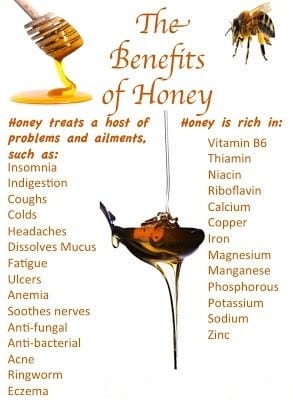
It has a healthy Glycemic Index (GI), which means that its sugars can be gradually absorbed into the bloodstream for better digestion. Hence, we should try to avoid eating excessively high-glycemic foods which would prompt an elevated insulin release in our body as a result of the pancreas being stimulated to metabolize the sudden surge of glucose into the blood.
Furthermore, manuka has an even richer nutritional profile of numerous minerals and vitamins.
- Antioxidants
- Amino acids
- Calcium
- Copper
- Iron
- Magnesium
- Manganese
- Phosphorus
- Potassium
- Sodium
- Zinc
- Vitamins B (B6, thiamin, niacin, riboflavin, pantothenic acid)
It’s also totally free of fats and cholesterol!
The nutritional content of manuka nectar is up to 4 times that of normal flower.
Manuka also contains an ingredient with powerful antibacterial, antimicrobial, antiviral, antioxidant, antiseptic, anti-inflammatory, and antifungal properties.This is known as the Unique Manuka Factor.
How to Store Honey or Manuka Honey?
We should store honey in its original bottle in a dry and cool place that’s out of direct sunlight.
It’s antibacterial and has a long shelf life without the need to be refrigerated. Also, there’s no need to refrigerate them as honey can be stored at room temperature.
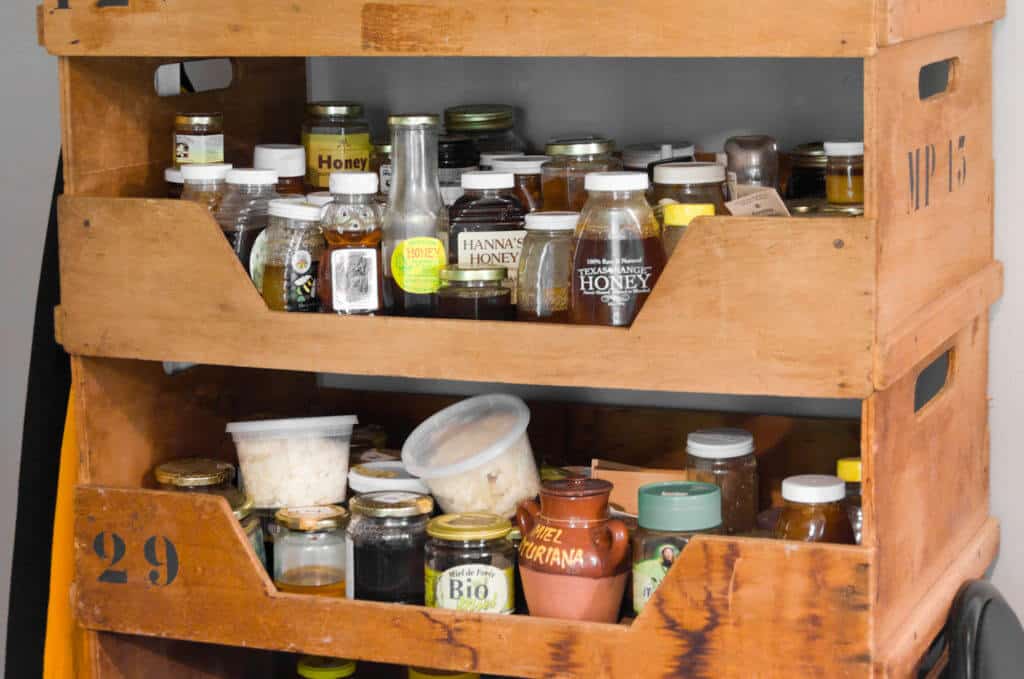
Avoid refrigeration to prevent crystallisation. Crystallisation is the natural process of glucose sugar molecules aligning into orderly arrangements known as crystals. However, don’t worry as crystallisation doesn’t indicate spoilage, impurity, age, or quality. This can be reversed by leaving it at room temperature overnight.
Always keep them in their original bottles, either in glass or high-quality plastic in your kitchen cabinets or shelves.
Make sure that your bee products are genuine and comes from authentic sellers, as reputed brands usually use high-quality plastic/glass containers to ensure that the manuka properties are maintained.
Does Honey Have an Expiration Date?
No expiration date because honey does not spoil nor rot as it has very little water content. The expiration date (maximum of five years in most countries) is usually to fulfill legal obligations.
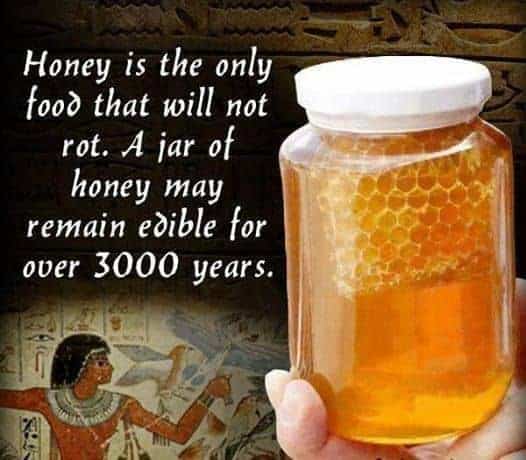
They found many ancient pots, made thousands of years ago and they are all edible.
Modern government food regulations have a maximum of 5 years expiry dates from the date of production. Hence even though scientific evidence points out that it does not spoil, they still put a 5-year expiry date on all food sold.
How Do You Eat Manuka Honey Properly?
Do NOT mix in hot water. Instead take one tablespoon two to three times a day before meals. Eat it directly from the spoon without mixing it into a drink to reap the most benefits. Premium manuka brands don’t taste too sweet – in fact, some have a bittersweet taste.
You can also wash it down with some plain water.
Some premium manuka brands like Kare have a bitter aftertaste, while some other brands like Woodlands Organic and Comvita are sweeter and popular with children.
However, manuka honey is usually thicker and takes a long time to mix with water than normal. Thus, you should just scoop it up and eat it.
Can I Use a Metal Spoon or Wooden Spoon Dipper for Honey?
No, you do not have to use a wooden or ceramic spoon for honey: any type of spoon is fine. The rumor that using a metal spoon will spoil them is a myth.
People usually suggest not using a metal spoon as it has an acidic pH and may react with a metallic surface. It’s assumed that this reaction may damage and reduce its healing properties.
Frankly, most beekeepers and professionals know that using a metal spoon is acceptable. You are simply scooping it out and thus the metal will only be in contact for a short period of time. This has negligible effects. However, it is not advised to leave a metal spoon in a jar overnight.

If you insist on using a non-metal spoon to eat it, you can just stick to using any wooden, ceramic, or plastic spoon.
Mixing Honey Into Drinks for Children
For children, you can mix it as a drink. Combine it with room temperature, cold or warm water (not too hot), and remember that hot water will damage the enzymes and nutrients within the honey.
You could also try mixing it with toast or crackers for breakfast or snacks.
When Can My Baby Eat Honey? Manuka honey is safe to consume for children?
Children can eat honey when they are at least 12 months old.
Honey naturally contains the spores of the bacterium Clostridium botulinum. However, this does not mean that it’s contaminated. It’s natural and harmless to almost all adults and children.
Unfortunately, a baby below 12 months old has not developed his digestive and immune system well and can suffer from ill effects of the bacteria spores, a condition called botulism. It may cause sickness or even death. Hence, to reduce such risks, avoid giving any to babies. Babies below one-year-old should avoid all honey, even “pasteurised” ones as traces of botulism bacteria may still exist.
How Can I Take Apple Cider Vinegar and Honey?
- You can mix one teaspoon of apple cider vinegar (0.17oz / 5ml) with one teaspoon of honey into a glass of water (8 oz / 240ml)
- Drink at least once in the morning and once in the evening
What Is UMF ® trademark (Unique Manuka Factor)?
UMF is a quality trademark and grading system. The higher the number, the stronger and higher the quality of the product. A high rating means that the honey is more potent and has more nutrients within.
Warning: Do not confuse established labels such as UMF® or MGO 400+ (any numbers) with other unknown branding labels, for example “Active Manuka Honey 20+” (any number). MGO comes from trusted merchant board as well. If your product is not labeled by trusted boards, you may be buying fake stuff. Other numbers are other companies’ ways of classification and you may have to do more research to ensure that it’s authentic.
It’s noted that not all brands have UMF® and that not every level has antibacterial, antiviral, or antiseptic benefits. A simple guideline is: the higher number, the higher the potential health benefits.
Researchers have proven that manuka is one of the strongest bacteria killers even when diluted 10 times. Thus, it’s strongly recommended for people with weak immune systems.
Why Are Only Certain Types of Honey Graded With UMF / MGO System?
The manuka bush where manuka is harvested only grows in specific places. Furthermore, this flower does not have this specific property throughout the year. For this reason, not all harvested honey has a rating or labels.
The special property comes from an enzyme within the manuka tree flower. This enzyme is not produced in the flowers all year round and it’s dependent on the country’s seasons. Many have speculated that this enzyme could be due to environmental factors such as soil type or the weather.
Which UMF Is Suitable? how do I interpret the grading?
Most healthy individuals will find UMF® 10+ manuka honey ideal and effective in improving their immunity.
Manuka with less than 10 has a low level of activity and may not be effective for some medical conditions. The ideal potency is between 10+ and 18+.
You may use the UMF Grades guideline in consuming manuka honey.
- 5+: To test textures, tastes, and suitability. You can eat it daily as it’s very affordable.
- 10+: To boost a healthy individual’s immunity system. Taken daily for maintenance of good health. Most people buy 10+ as it’s usually the most common and is enough to maintain our good health
- 15+: For those who may be weak and fall sick easily. For those with bad health problems such as gastric, this is more potent and suitable for you
- 18+ and 20+: For those with serious gastric problems or health issues. Due to tight production difficulties, 18+ and 20+ are extremely expensive and usually out of stock. Production is tight due to the high quality required to pass lab tests. You may find it occasionally on sale at manuka honey store Singapore
UMF® Honey Association Licensees

The UMFHA has more than 67 companies licensed to use the UMF® trademark.
Only organisations with a license are allowed to use the UMF® trademark.
Honeycity Distributes Honey From These Registered Licensees of UMF® Manuka Honey:
| License # | New Zealand Company | Website |
| 1019 | Comvita New Zealand Limited. 康维他。 康维他麦卢卡蜂蜜是华人最信赖的麦卢卡蜂蜜品牌。 | www.comvita.com |
| 2202 | Kare Ltd | www.kare.co.nz |
|
2252 |
Onuku Ltd | http://www.umf.org.nz/portfolio/onuku-ltd/ |
How Do I Know if My Manuka Honey Is Real and Genuine?
More than 80% of manuka honey sold globally is fake. New Zealand mānuka honey only produces 1700 tons of manuka annually, but globally more than 10,000 tons are sold!
This means most manuka are fraudulently labeled and sold. The cheap stuff you got at a bargain is likely to be just regular honey, or worse, sugar syrup with thickener and chemicals added.
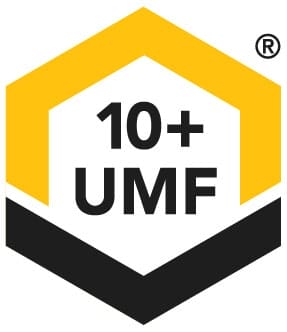
Make sure that you buy from specialty stores that import from New Zealand directly. This is because most distributors and supermarkets are not even aware that the “manuka honey” they sell is fake.
Trust the registered trademarks because they’re enforced by the New Zealand government to protect the products’ authenticity.
Buy the best manuka honey brands in Singapore
Manuka honey is known for its antibacterial properties and is a popular choice for its health benefits. If you are in Singapore and looking to buy the best brands, it is important to purchase from reputed retailers like honeycity.com.sg.
This ensures that you are getting authentic products that are high in quality. Some of the best brands that you can find in Singapore include Comvita, Wedderspoon, and Manukora. These brands offer different variants, each with its unique properties and flavor.
Buying health supplements including manuka honey from genuine Singapore sellers can give you peace of mind knowing that you are getting the best and most authentic product, and it is the best place to buy if you want to experience the numerous health benefits.

